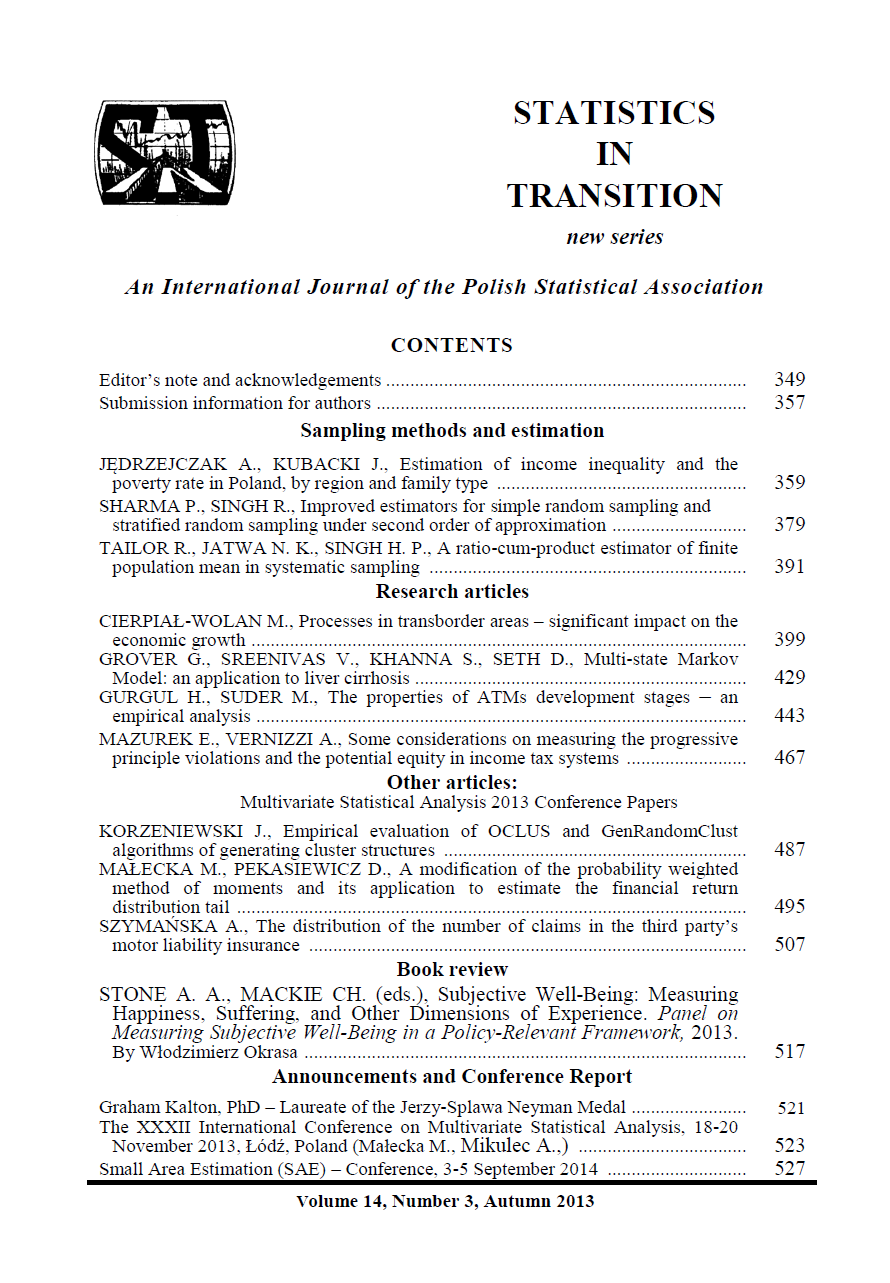ARTICLE
ABSTRACT
Kakwani and Lambert (1998) state three axioms which should be respected by an equitable tax system; then they propose a measurement system to evaluate at the same time the negative influences that axiom violations exert on the redistributive effect of taxes, and the potential equity of the tax system, which would be attained in absence of departures from equity. The authors calculate both the potential equity and the losses due to axiom violations, starting from the Kakwani (1977) progressivity index and the Kakwani (1984) decomposition of the redistributive effect. In this paper, we focus on the measure suggested by Kakwani and Lambert for the loss in potential equity, which is due to violations of the progressive principle: the authors’ measure is based on the tax rate re-ranking index, calculated with respect to the ranking of pre-tax income distribution. The aim of the paper is to achieve a better understanding of what Kakwani and Lambert’s measure actually represents, when it corrects the actual Kakwani progressivity index. The authors’ measure is first of all considered under its analytical aspects and then observed in different simulated tax systems. In order to better highlight its behaviour, simulations compare Kakwani and Lambert’s measure with the potential equity of a counterfactual tax distribution, which respects the progressive principle and preserves the overall tax revenue. The analysis presented in this article is performed by making use of the approach recently introduced by Pellegrino and Vernizzi (2013).
KEYWORDS
equity, personal income tax, progressive principle, redistribution, re-ranking.
JEL
C81, H23, H24
REFERENCES
ARONSON, R. J., JOHNSON, P. J., LAMBERT, P. J., (1994). Redistributive Effect and Unequal Income Tax Treatment, The Economic Journal, 104, pp. 262–270.
KAKWANI, N. C., (1977). Measurement of tax progressivity: an international comparison, Economic Journal, 87, pp. 71–80.
KAKWANI, N. C., (1984). On the measurement of tax progressivity and redistributive effect of taxes with applications to horizontal and vertical equity, Advances in Econometrics, 3, pp. 149–168.
KAKWANI, N. C., LAMBERT, P. J., (1998). On measuring inequality in taxation: a new approach, European Journal of Political Economics, 14 (2), pp. 369–80. doi:http://dx.doi.org/10.1016/S0176-2680(98)00012-3.
LAMBERT, P. J., (2001). The Distribution and Redistribution of Income, Manchester University Press, Manchester and New York.
PELLEGRINO, S., VERNIZZI, A., (2013). On measuring violations of the progressive principle in income tax systems. Empirical Economics, 45 (1), pp. 239–245, doi: 10.1007/s00181-012-0613-1
